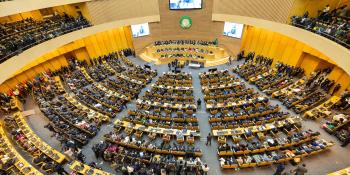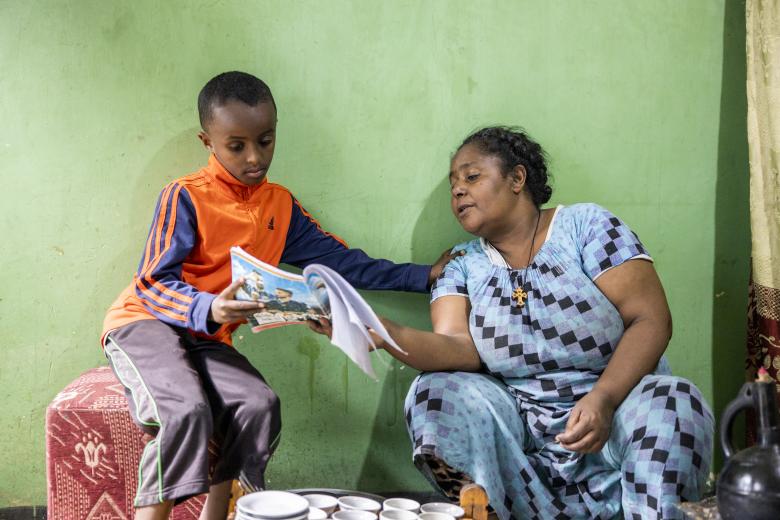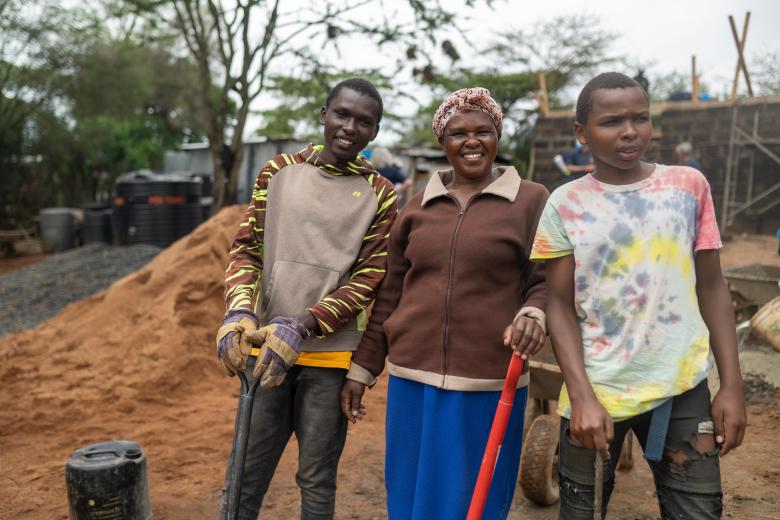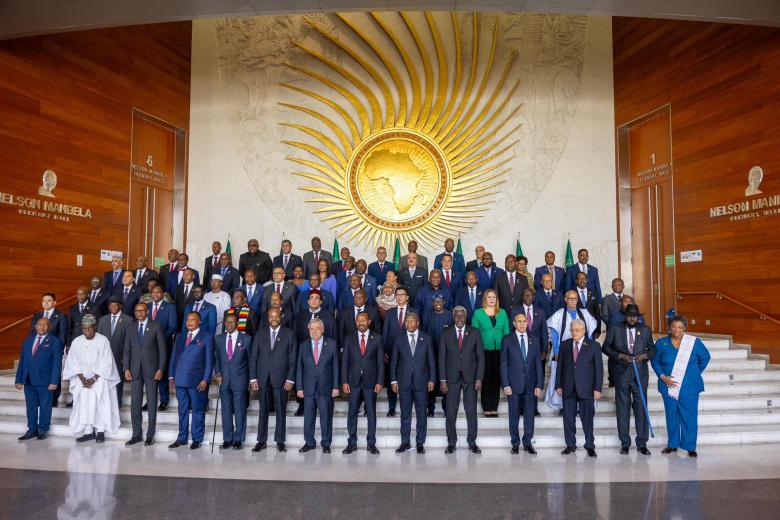
Can Housing Justice Advance Reparations for Africans and People of African Descent?
Reflections from the 38th African Union Summit | Addis Ababa, Ethiopia
At this year’s 38th African Union Summit in Addis Ababa, leaders rallied around a bold and timely theme: “Justice for Africans and People of African Descent Through Reparations.” While reparations are often viewed through a financial lens, the summit emphasized the need for deeper structural change - addressing inequalities that continue to hold communities back.
One of those inequalities? Housing.
According to Akinwumi Adesina, president of the African Development Bank (AfDB), over 56 million housing units are needed on the continent. More than 90% of that need is in the affordable housing bracket, requiring an estimated $1.4 trillion in investment.
Several factors drive this housing deficit, including rapid urbanization, population growth, land tenure insecurity and economic challenges. The scale of the need across countries is sobering:
- Nigeria has a housing deficit of 22 million units
- Tanzania and the Democratic Republic of Congo each report shortages of 3 million units
- Kenya, South Africa, and Madagascar face deficits exceeding 2 million units
- In Ethiopia, more than 70% of the housing stock requires complete replacement. The huge housing deficit has led to the growth of informal settlements, overcrowding, and substandard living conditions, especially in urban centers.

Linking reparative justice to the HomeEquals campaign work in Africa
“A man without a home is like a bird without a nest,” goes an African proverb. Homes are more than four walls, they are where dignity, identity, and opportunity begin. When people live in inadequate housing, they are more vulnerable to poverty, exclusion, and the impacts of climate change.
Housing justice is indeed social justice. That’s why we’re working across Africa to create housing solutions that are decent, inclusive, and sustainable – solutions that speak directly to the aspirations of the AU Agenda 2063 and the call for reparative justice.
Across our work in Africa, our advocacy through our Home Equals Campaign echoes the reparative justice of this agenda. The Home Equals Campaign Research aligns with this vision by advocating for policies that:
Prioritize land and housing rights for historically marginalized communities.
Promote inclusive urban development that prevents forced evictions and displacement.
Encourage investment in affordable housing to reduce economic disparities.
For instance, by facilitating access to credit in Kenya, Habitat for Humanity is helping address historical barriers to housing finance for low-income households and marginalized groups empowering them to have safe and affordable homes.
Similarly, in South Africa, Habitat for Humanity has engaged over 6,000 citizens in building and advocating for decent shelter, directly impacting communities that continue to grapple with the legacy of apartheid and other historical injustices. And in Ethiopia, our work to build climate-resilient housing in informal settlements speaks to the urgent need for cities that protect, not exclude.

Key takeaways from the summit: aligning commitments with housing justice
During the summit, leaders emphasized the need for justice that addresses the continent’s pressing challenges, including the housing crisis, climate change, and economic disparities. They also called for solutions that empower Africa’s youth and secures their future.
Several commitments made at the Summit echoed Habitat for Humanity’s mission to advance housing, land security, and inclusive development across Africa:
- The AU’s Ten-Year Strategy for Agri-Food Systems transformation highlights the need for secure land rights aligns with Habitat’s focus on equitable land access, recognizing that secure land tenure is foundational not only for agriculture but also for decent, resilient housing and long-term community development.
- UN Secretary-General’s call for peace, justice, and infrastructure investment António Guterres called for more investment in resilient cities and infrastructure, equitable energy access and climate action echoes Habitat for Humanity’s focus on climate-resilient housing.
- Outgoing AU Chair H.E. Moussa Faki Mahamat emphasized youth empowerment and community resilience, reinforcing Habitat for Humanity’s commitment to people-led housing solutions

African presidents pose for a photo at the 38th AU Summit
Call to action: Habitat for Humanity’s recommendations for the African Union
Based on these commitments, we continue to call on governments, civil society and development partners to prioritize housing, elevating informal settlements, strengthening multi-sector partnerships and promoting climate resilient housing.
While the AU has made great strides through the New Urban Agenda, we urge the AU and its new leadership under H.E Mahmoud Ali Youssouf to continue championing policies that:
- Secure land and housing rights for marginalized communities through inclusive policy frameworks.
- Integrate sustainable housing into urban planning to protect vulnerable populations.
- Mobilize public and private financing to help close the continent’s $1.4 trillion housing gap.
- Strengthen collaboration among member states and regional blocs like Economic Community of West African States (ECOWAS), the East African Community (EAC), and the Southern African Development Community (SADC) to address cross-border challenges related to housing insecurity, climate resilience, and sustainable development.
Habitat for Humanity was proud to participate in the AU Summit alongside partners like United Cities and Local Governments of Africa (UCLGA), United Nations Economic Commission for Africa (UNECA), African Green Climate Finances National Designated Authorities Network (AfDAN) among others. Together, let’s ensure that this conversation leads to action, not just in policies, but in real homes, real communities, and real futures for the people of Africa and its global diaspora.
(Respectively) Policy and Advocacy Manager HFH Ethiopia, National Director HFH Ethiopia and AU representative, Africa Policy and Advocacy Manager, Africa Advocacy Assistant